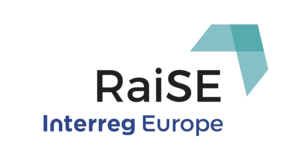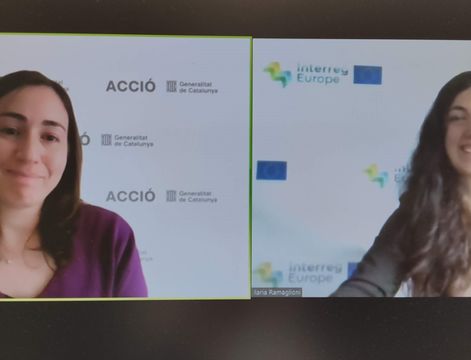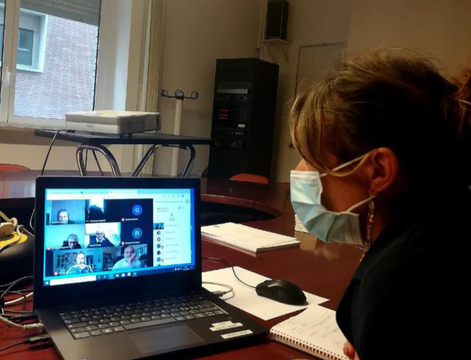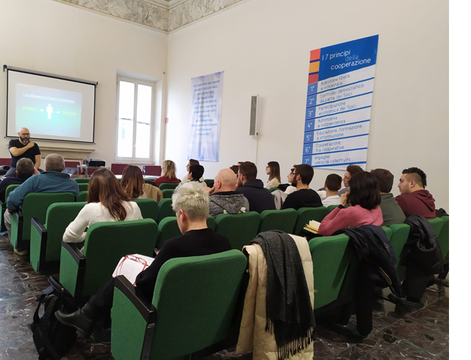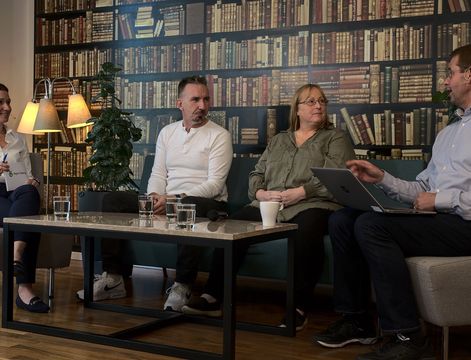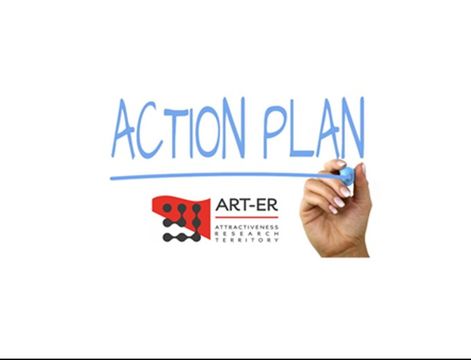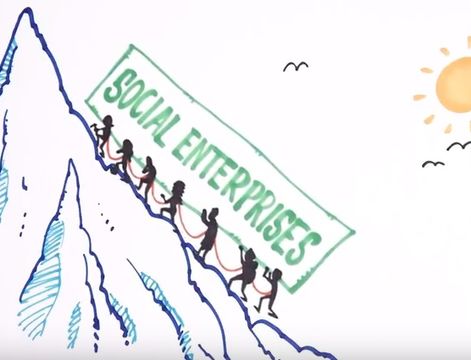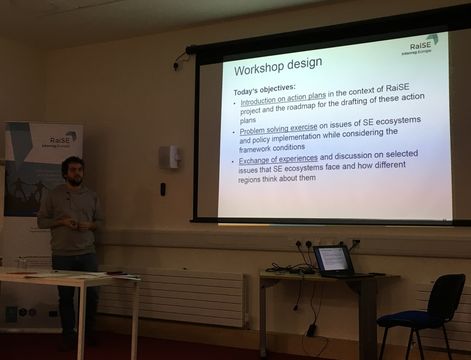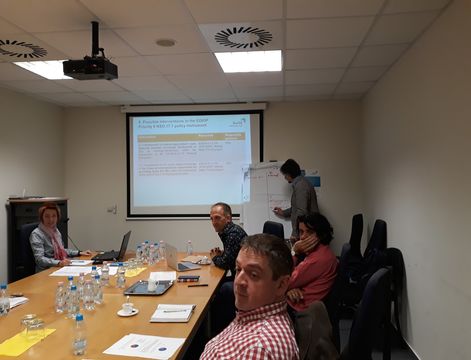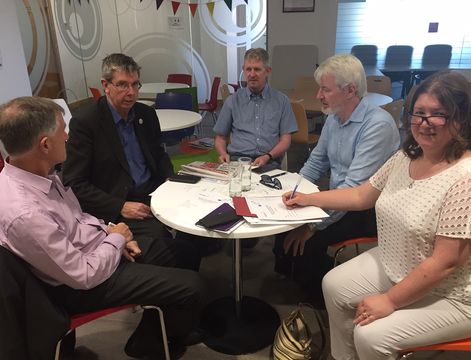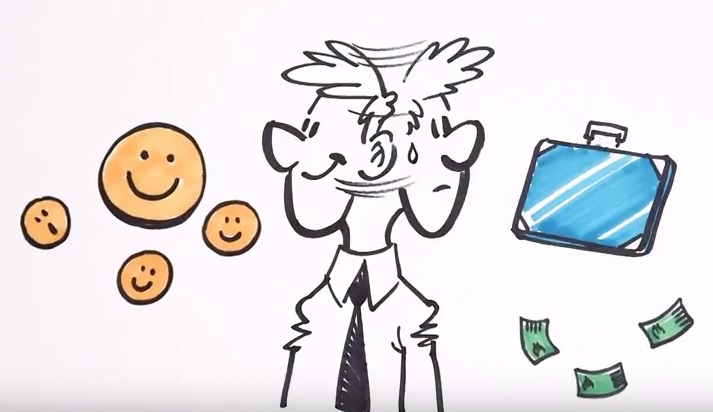Public presentation of the Study on the Social Enterprises Ecosystem in Catalonia
ACCIÓ (Lead Partner) organised a dissemination event on 31 January 2018 to present RaiSE Study to the wider public.
Presentation of RaiSE Interreg Europe project
After a welcome by Clàudia Danesi (ACCIÓ), the session started with a presentation of RaiSE Interreg Europe project by Paula Santarén (ACCIÓ). Paula explained that every project partner of RaiSE has developed the same Study on the Social Enterprises Ecosystem, with a special focus on barriers & needs and proposals for actions to overcome them. The 6 Studies and the Interregional Analysis developed by ZSI (RaiSE advisory partner) will be used in June 2019 to elaborate the Action Plans.
Presentation of the Study "The Social Enterprises Ecosystem in Catalonia"
Then, Marta Marsé (ACCIÓ) and Jaume Oller (Tandem Social, who has elaborated the Catalan Study), presented the Study "The Social Enterprises Ecosystem in Catalonia". The Study defines a “social enterprise” as an enterprise that reinvests 100% of its profits, which mission is to achieve a positive impact on society and more than 50% of its income comes from the billing for sales (services or products). The Study has identified 293 enterprises that fulfil this criteria.
Main features of the Catalan social enterprise
- Their main field of impact is labour insertion (52,6%), specially of people at risk of social exclusion (28,8%). Most of them (70%) are service providers.
- Most of them (66,1%) have Catalonia as their main commercialisation area , but 22,5% have international experience.
- Most of them (52,6%) have more than 10 years of experience.
- The average income of 56% of them is under 500.000€ per year.
- It is a feminised sector (2/3 workers are women).
Difficulties, needs and challenges of the social enterprise
- The main problems for Catalan social enterprises are linked to market and trading aspects. We can also identify difficulties at an economic and financial level. The main strategic identified needs are business model and marketing.
- Social enterprises tend to use specific support resources for social enterprises before using support resources for enterprises in general. Nevertheless, there is a tendency not to use them, and when they do, they usually prefer to use private resources rather than public resources.
- The main needs and challenges of the social enterprises are the creation of an accompaniment programme for the foundation of social enterprises, the creation of a public guarantees programme for treasury loans, the promotion of the setting up of a social risk capital fund and the promotion of effective social clauses in public procurement to enhance the competitiveness of social enterprises. We can also highlight the creation of a programme to promote the recruitment of shared workers, the creation of an incubation programme for social entrepreneurs in existing social enterprises and the creation of a programme to promote the generation of groups or mergers of social enterprises.
The vision of a Catalan social enterprise

To finalise the presentation of the Study, Jaume Oller interviewed Juli Silvestre (from the social enterprise Entrem-hi) to know the thoughts of a representative Catalan social enterprise about the results of the Study.
Presentation of the service "Aracoop Internacional"
At the end of the session, Alicia Blasco (ACCIÓ) presented the service "Aracoop Internacional", a free service that ACCIÓ offers to social enterprises to help them in their internationalisation process, which will be included in RaiSE Good Practices Guide.

Studies available in RaiSE website
The 6 Studies on the Social Enterprises Ecosystem and the Preliminary Interregional Analysis can be found on the "Library" section of RaiSE website.
